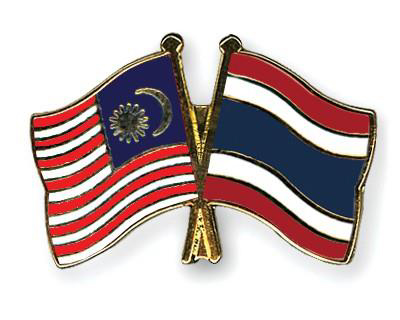THE nuances that contribute to the delicate relations among Asean members deserve greater acknowledgement, especially when such nuances are often misunderstood.
Each set of bilateral relations among the 10 nations is unique. Clarity amounts to a better understanding of Asean and South-East Asia as a whole. Malaysia-Thai relations are striking for several reasons. Thailand is Malaysia’s next-door neighbour, and yet it is quite unlike Indonesia, whose Kalimantan is adjacent to Sabah and Sarawak in Borneo.
Communities living and working in the border region are so close as to be related and even form the same family. With Indonesia, some negative political baggage from the period of fierce Konfrontasi (Confrontation) against Malaysia lingers.
Singapore is also physically close to Malaysia, if separated by water and linked only by the Causeway and the Tuas Second Link.
Singapore had also been part of Malaysia. But that can come with some political baggage from the separation.
Thailand however has no such baggage. Apart from the common communities in the border region, Thailand and Malaysia have also combined efforts to combat the common scourge of insurgency.
For decades, close defence and diplomatic relations were nurtured and flourished between Malaysia and Thailand.
The precise nature of relations may depend on the particular administration of each country at any given time, but overall ties have always been healthy. In the first half of this year, bilateral trade grew by almost 20%.
Trade between both countries has been growing steadily, rising by some 8% last year from 2016. Total trade recorded last year was RM98.69bil.
As a testament to the importance of the border community and its level of regular cross-border activity, 60% of total trade between Malaysia and Thailand occurs in the border region.
This is as much as Thailand’s border trade with its other next-door neighbours – Cambodia, Laos and Myanmar – combined.
Malaysia is one of Thailand’s main trading partner within Asean. At the same time, Malaysian-Thai relations are more than just trade. According to senior Thai diplomats, bilateral relations today are at their best. These include, and particularly relate to, defence or military relations that are now in their 53rd year. Prime Minister Prayut Chan-ocha met Malaysia’s Armed Forces Chief Gen Tan Sri Zulkifli Zainal Abidin in Bangkok last August.
For both, it was reportedly like old times. Prayut and Zulkifli had known each other since they were Chief of Army in their respective countries.
Malaysia and Thailand are now also engaged (with China) in joint military exercises. Bilateral defence ties have clearly developed from their early operational coordination in the border region. On economic policy, Thailand, Malaysia and Indonesia launched a currency framework last December to handle trade and investments in their own currencies.
This plan to save cost by avoiding conversions to and from the US dollar came into effect this year. Over the years, an annual meeting between the Thai and Malaysian Prime Ministers known as the Annual Consultation has become a norm.
These and other positive developments in bilateral ties mean that Prime Minister Tun Dr Mahathir Mohamad’s visit to Thailand this week comes at a most propitious time.
For Malaysia, it is also an opportunity to introduce the new Pakatan Harapan Government to Thailand. On the eve of Dr Mahathir’s visit, Thai officials again expressed their gratitude to Malaysia for serving as Facilitator to help resolve the violent conflict in Thailand’s southernmost provinces.
The situation there indicates that much work remains to be done by way of deeper and broader cooperation between the two countries. To help oversee security and peace at grassroots level, the roles of the General Border Committee and the Regional Border Committee are key. Their management and seamless operation are vital. Both countries would also benefit when communities in the border region are better identified through a more distinct nationality or citizenship status.
The task of ending dual citizenship thus remains. Beyond census purposes, the identification of individuals with one country or the other would help develop a better sense of belonging while maintaining the close relations between both countries.
Success in curbing crime will also help improve relations and local living conditions. This requires continued joint efforts against smuggling and human trafficking. Malaysia’s ambassador to Thailand, Datuk Jojie Samuel, took up his post this year and pledged to take trade and other relations to new heights.
Not only can port facilities be developed further, but also immigration and customs services and tourist attractions. There has even been a proposal to establish a land bridge between the Port of Songkhla in southern
Thailand and Penang Port. Both countries have a common interest in economic development with security, peace and stability. Closer cooperation is clearly in the air.





